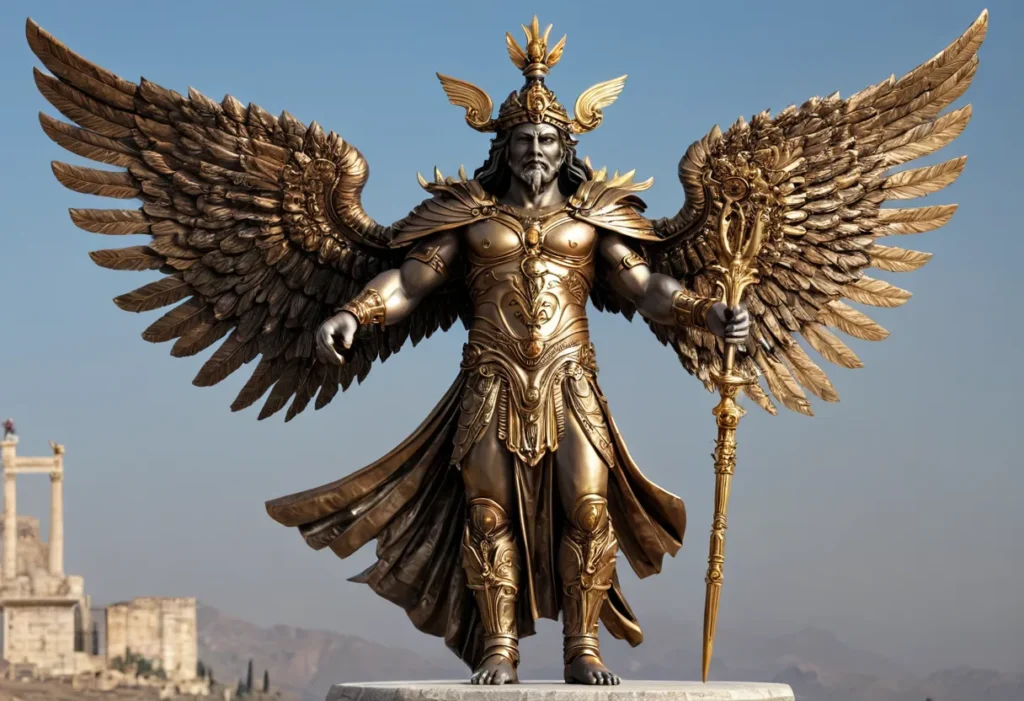Zoroastrianism, one of the world’s oldest continuously practiced religions, has a rich history and profound influence on the religious and philosophical landscape. Originating in ancient Persia, this religion has survived through millennia, maintaining its unique doctrines and practices. This article delves into the origins, core beliefs, historical significance, and modern relevance of Zoroastrianism, providing a comprehensive overview for those seeking to understand this ancient faith.

Origins of Zoroastrianism
Zoroastrianism was founded by the prophet Zoroaster (or Zarathustra) in ancient Persia, now modern-day Iran, around 1500 to 1000 BCE. Zoroaster’s teachings are encapsulated in the Avesta, the sacred scriptures of Zoroastrianism. The religion emerged during a time of polytheistic practices in Persia, and Zoroaster’s monotheistic vision marked a significant departure from the prevalent religious norms.
The Life of Zoroaster
Little is known about Zoroaster’s early life, but it is believed that he was born into a priestly family. His spiritual journey began with a series of divine revelations, which led him to preach a message centered on the worship of Ahura Mazda, the Wise Lord, and the rejection of the existing polytheistic deities. Zoroaster’s teachings emphasized moral and ethical living, the duality of good and evil, and the eventual triumph of good.

Core Beliefs of Zoroastrianism
Zoroastrianism is a monotheistic religion that revolves around the worship of Ahura Mazda. Its core beliefs are characterized by the concepts of dualism, cosmic struggle, and ethical living.
Ahura Mazda: The Supreme Deity
Ahura Mazda, meaning “Wise Lord,” is the central deity in Zoroastrianism. He embodies all that is good, pure, and righteous. Zoroastrians believe that Ahura Mazda created the world and everything in it, and he is engaged in a constant battle against Angra Mainyu (or Ahriman), the destructive spirit representing chaos and evil.

Dualism and Cosmic Struggle
One of the fundamental aspects of Zoroastrianism is its dualistic worldview, which posits a cosmic struggle between the forces of good (represented by Ahura Mazda) and evil (embodied by Angra Mainyu). This dualism is not merely a metaphysical concept but is reflected in the ethical choices individuals make in their daily lives. Zoroastrians are encouraged to follow the path of Asha (truth and righteousness) and oppose Druj (falsehood and deceit).
Ethical Principles: Good Thoughts, Good Words, Good Deeds
Zoroastrian ethics are encapsulated in the triad of “Humata, Hukhta, Hvarshta,” which translates to “Good Thoughts, Good Words, Good Deeds.” These principles guide Zoroastrians in their interactions with others and their conduct in society. The emphasis on moral integrity, charity, and social justice is a hallmark of Zoroastrian ethical teachings.

The Afterlife and Eschatology
Zoroastrianism has a well-defined eschatological framework. It teaches that after death, souls are judged at the Chinvat Bridge, where their deeds are weighed. Those who led righteous lives cross the bridge to the House of Song (paradise), while the wicked fall into the House of Lies (hell). Ultimately, Zoroastrianism envisions a final renovation of the world (Frashokereti), where good triumphs over evil, and all souls are purified and reunited with Ahura Mazda.
Historical Significance and Influence
Zoroastrianism was the dominant religion of the Persian Empire, notably under the Achaemenid, Parthian, and Sassanian dynasties. Its principles influenced not only the region’s culture and governance but also other major world religions.

The Achaemenid Empire
The Achaemenid Empire (c. 550–330 BCE) was the first Persian Empire to embrace Zoroastrianism as a state religion. Leaders such as Cyrus the Great and Darius the Great were known for their Zoroastrian piety. The religion’s emphasis on justice, law, and governance played a crucial role in shaping the empire’s administrative and social structures.
Influence on Other Religions
Zoroastrianism’s concepts of monotheism, dualism, and eschatology are believed to have influenced other major religions, including Judaism, Christianity, and Islam. The ideas of heaven, hell, and the final judgment, central to these religions, bear striking similarities to Zoroastrian teachings.
Zoroastrianism in the Modern World
Despite its historical significance, Zoroastrianism today is a minority religion with followers primarily in Iran and India, where they are known as Parsis. The religion faces challenges of declining numbers and preserving its ancient traditions in a modern context.

The Parsi Community in India
The Parsis, descendants of Zoroastrians who fled Persia to escape religious persecution, settled in India around the 8th century CE. They have significantly contributed to India’s cultural, social, and economic fabric. Prominent Parsis, such as industrialist Jamsetji Tata and musician Freddie Mercury, have left lasting legacies.
Preservation of Tradition and Culture
Modern Zoroastrians strive to preserve their religious and cultural heritage through various means. Fire temples (Atash Behrams and Agiaries) continue to be the centers of worship. Festivals like Nowruz (New Year) and Gahambars (seasonal festivals) are celebrated with zeal, reflecting the community’s commitment to their traditions.

Challenges and Adaptations
The Zoroastrian community faces several challenges, including declining population due to low birth rates and intermarriage. Efforts are being made to address these issues, such as community programs to encourage youth participation and the use of technology to connect dispersed Zoroastrians worldwide. The religion’s adaptability to modern values while maintaining its core tenets is crucial for its survival.
Conclusion
Zoroastrianism, with its rich history and profound teachings, continues to be a source of spiritual guidance and ethical inspiration. Its emphasis on good thoughts, good words, and good deeds resonates with universal values, making it relevant even in the contemporary world. As Zoroastrians navigate the challenges of the modern era, their enduring faith and commitment to their principles offer valuable lessons for all.

For those interested in exploring further, understanding Zoroastrianism provides a window into the ancient wisdom that has shaped human civilization and continues to inspire individuals to lead lives of integrity and purpose.











